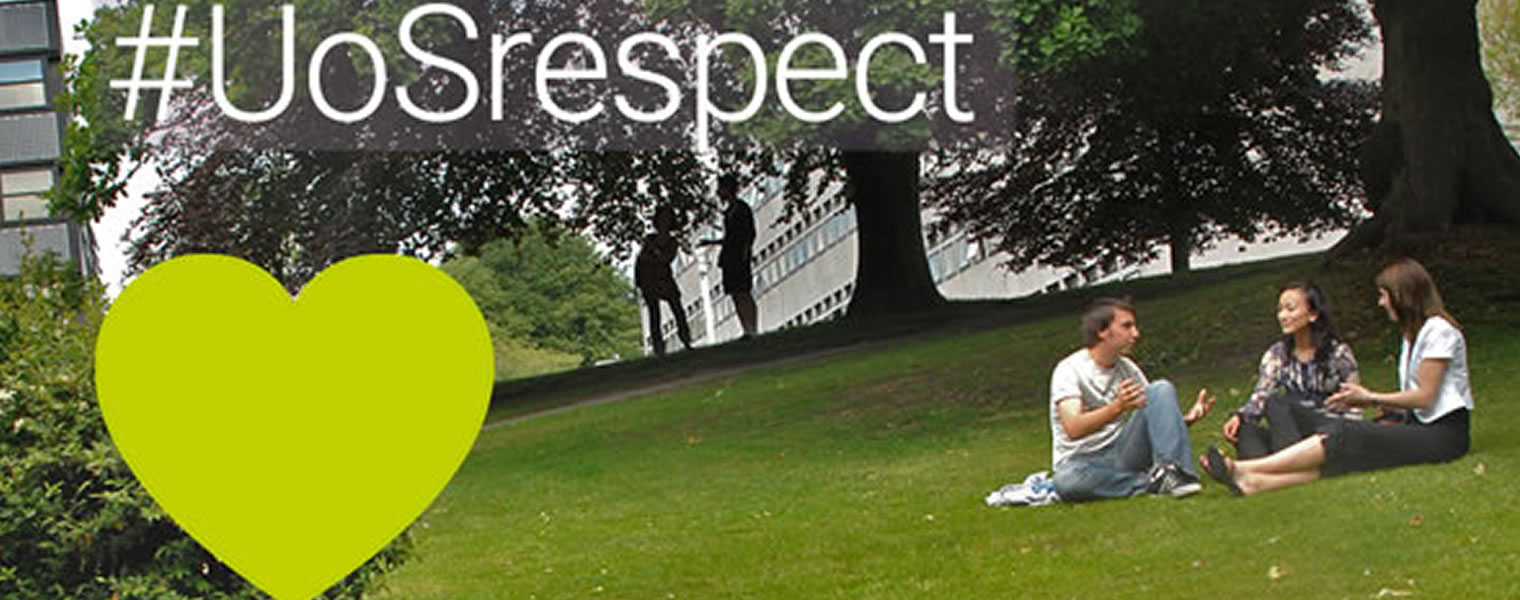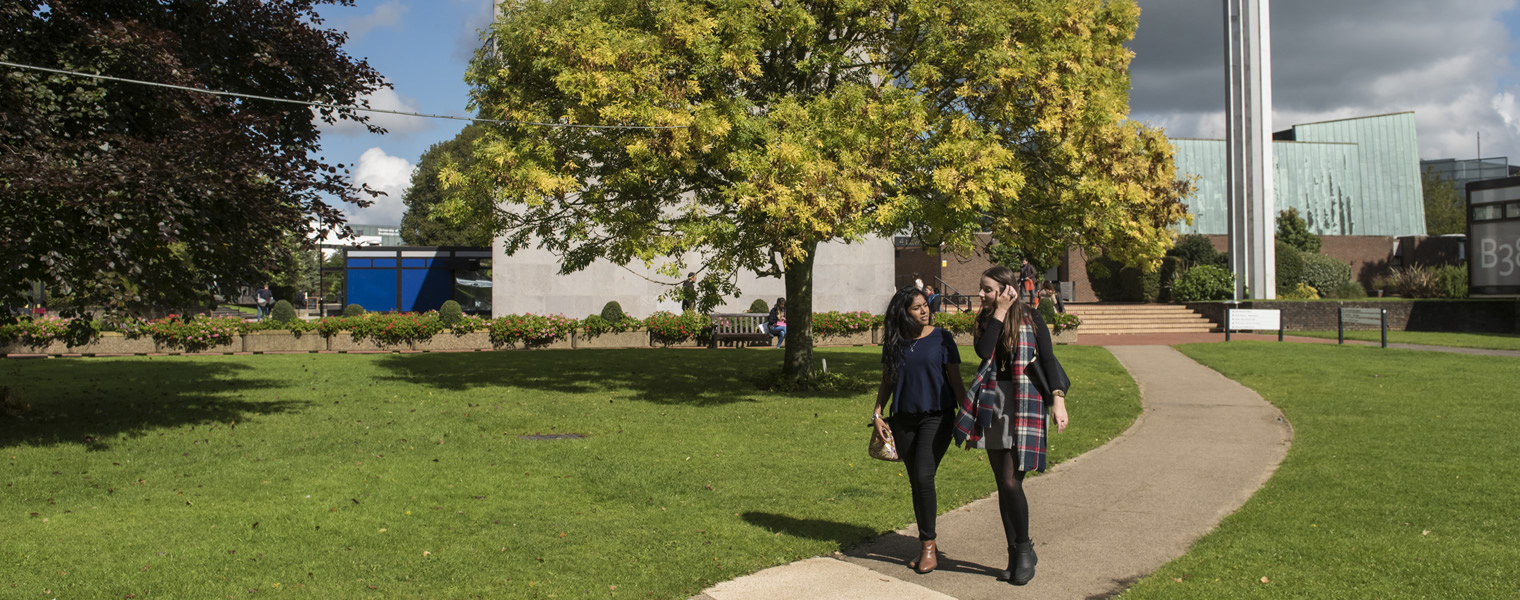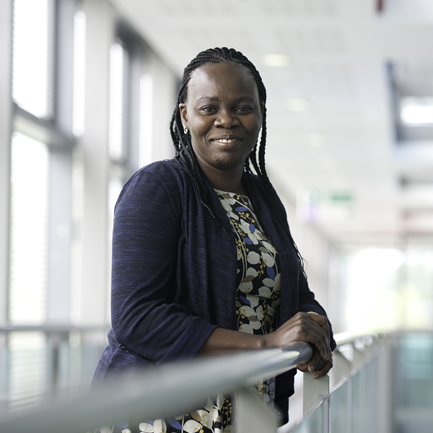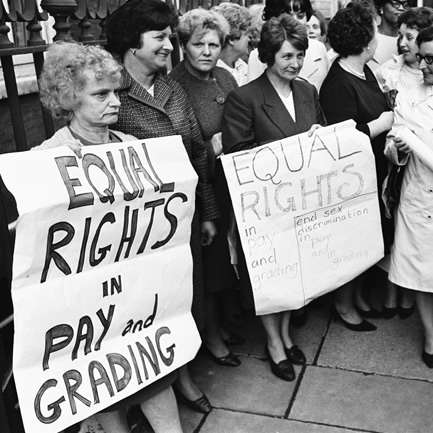Hartley News Online Your alumni and supporter magazine
A new community campaign, #UoSrespect has been launched to encourage everyone to treat each other with dignity, courtesy and respect. Southampton Connects Staff explores why we need this initiative.
At Southampton, we believe that everyone should be treated with dignity and respect, and that we should all be able to benefit from a positive, supportive environment whether we’re here for work or study.
One of the four core principles of our University’s strategy is ‘Collegiality’, and we need to embed this into everything we do.
Respect plays a key role in delivering this principle, and we all need to be mindful of how we, as individuals, choose to take responsibility for our own actions.
This campaign is about treating everyone we meet with respect and dignity to make both the University of Southampton, as well as our local community, a better place for everyone.
The Campaign ties in with our Southampton behaviour of ‘Personal Leadership’ which includes taking an active approach towards our own development; reflecting on our behaviour and actively seeking feedback and adapting it accordingly.
Over the coming months, as part of our campaign, there will be a variety of activities to set the foundations for a culture of zero tolerance towards unwelcome behaviour at the University. This will include connecting with local charities to promote anti-bullying events, an Upstander Pledge initiative and an anonymous online bullying reporting tool, so staff and students feel they can support a victim or report an incident.
Sarah Pook, Executive Director of Finance and Planning, and Professor Bashir Al-Hashimi, Dean of the Faculty of Physical Sciences and Engineering, will be the Executive Champions, acting as role models and ambassadors for #UoSrespect.
Andy Cast, Director of HR Business Partnering, who’s running the campaign, says:
Many organisations are now taking a stand against unwelcome behaviour, such as bullying and sexual harassment, and the University is no exception.
“In the 2016 Staff Survey, 25 per cent of colleagues who responded, said they had experienced or witnessed bullying at the University in the previous 12 months. Whilst this is a difficult measure to assess because it’s hard to ascertain how many actual incidents of bullying there have been, obviously we should all be concerned about even a single incident where someone feels bullied.
“Being respectful in the workplace covers a wide range of behaviours. It can mean being courteous, polite and kind; encouraging co-workers to express opinions and ideas; treating people the same, no matter what their race, religion, gender or sexuality and not undermining people.”
Andy says it’s important to differentiate between bullying and reasonable management actions:
Managers need to manage the performance of every person in their team which should always include providing regular, balanced, specific feedback to help the person develop. They will also need to regularly monitor and keep in touch with how people are doing, use the HR procedures where relevant and assess each person’s contribution. All of these actions will help us meet the University’s objectives together.
The initiative has received a positive response from the unions:
Francesca Lambert, UNISON UoS Branch, Chair and Casework Co-ordinator said:
UNISON welcomes the University’s Respect programme, particularly in the current climate and with issues that have arisen nationally, where we all need to reaffirm our commitment to respect each other. UNISON will be working closely with our members to reflect staff views and experiences, and disseminate outputs from UoSrespect.
UCU endorses the UNISON quote.
Anne-Marie Sitton, Executive Director of Human Resources, commented:
All colleagues should be able to raise concerns, be listened to and supported if they are feeling bullied at work.
“Everyone has their part to play and the Upstander Pledge will ensure that, wherever there is a perception of bullying, it is fully investigated and resolved. Often issues start small and build into something far bigger. The opportunity for healthy challenge and high expectations is also important if we are to be a high performing University and therefore, our managers shouldn’t be afraid to tackle performance or relationship issues when they occur. By treating everyone with respect at all times, even when we are giving constructive feedback, we can stop issues festering into something far bigger.”
The University has an established network of Harassment Contacts from all over the University who provide a confidential service to staff and students who feel bullied or harassed.
Dignity at Work and Study Policy (Harassment Contacts)
Drop in recruitment sessions for those interested in becoming a Harassment Contact
20 June 2018, 13:00 – 14:00, Building 4/Room 4005, Highfield Campus
21 June 2018, 13:00 – 14:00, Building 65/2015, Avenue Campus
22 June 2018, 13:00 – 14:00, Building 63 East/Room 3023 Harvard L/T, Winchester School of Arts
25 June 2018, 13:00 – 14:00, CLS LC51, Southampton General Hospital
For questions about Harassment Contacts, contact Aysha Rahman, Equality, Diversity and Inclusion Officer.
Helpful links:
If you have a question about #UoSrespect, please contact Andy Cast, Director of HR Business Partnering
University guidance about bullying
Are you being bullied? Speak to a Harassment Contact or email diversity@soton.ac.uk.




